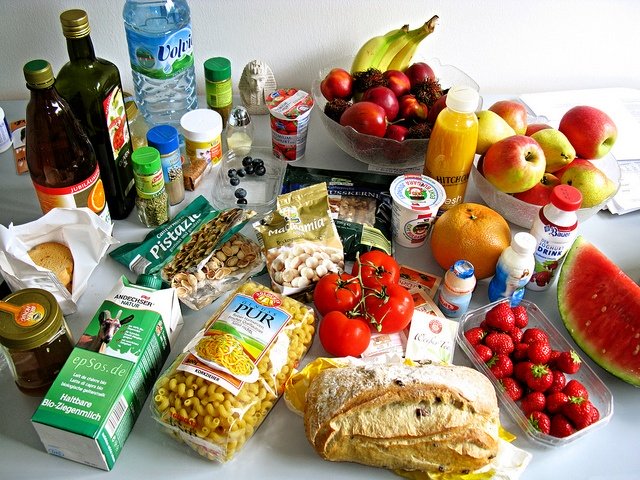
What Are Food Deserts, And How Do They Impact Health?
Food deserts are areas where individuals have constrained access to energizing and reasonable food. This might be expected to having a low salary or venturing out farther to discover restorative food choices.
Without access to refreshing nourishment, individuals living in food deserts might be at higher danger of diet-related conditions, for example, weight, diabetes, and cardiovascular malady.
A few government bodies are presently subsidizing ventures to keep regions from turning out to be food deserts and to improve individuals’ entrance to food in existing food deserts.
Continue perusing to become familiar with food deserts and how they sway well-being.
Food deserts are zones where individuals have restricted access to an assortment of invigorating nourishment. This might be expected to having a constrained salary or living far away from wellsprings of fortifying and reasonable food.
The United States Department of Agriculture (USDA) characterize a food desert as a zone that has either a destitution rate more prominent than or equivalent to 20% or a middle family pay not surpassing 80% of the middle family salary in urban regions, or 80% of the statewide middle family pay in non-urban zones.
So as to qualify as a food desert, a territory should likewise meet certain other models. In urban regions, in any event 500 individuals or 33% of the populace should live more than 1 mile from the closest huge market. In country zones, at any rate 500 individuals or 33% of the populace should live in excess of 10 miles from the closest huge supermarket.
The USDA recognized around 6,500 food deserts somewhere in the range of 2000 and 2006. Specialists gauge that around 23.5 million individuals in the U.S. Live in low pay zones that are farther than 1 mile to the closest enormous market. Of these individuals, 11.5 million have low earnings.

A 2012 USDA report on food deserts recommends that areas with the accompanying attributes are bound to become food deserts:
- extremely enormous or exceptionally inadequate populaces
- low salary
- significant levels of joblessness
- lacking access to transportation
- a low number of food retailers giving new produce at reasonable costs
The report additionally takes note of that provincial zones situated in the West, Midwest, and South of the U.S. Are substantially more prone to be food deserts than provincial zones situated in the Northeast. This might be on the grounds that provincial zones in the Northeast will in general be nearer to urban zones containing markets.
As indicated by the report, provincial territories with developing populaces may have a lower danger of turning out to be food deserts.
Specialists have not yet arrived at an understanding in regards to the attributes of the populaces that live inside food deserts.
As indicated by the 2012 USDA report, some exploration proposes that areas comprising principally of low pay minority ethnic gatherings have restricted access to stores contrasted and wealthier, overwhelmingly white neighborhoods.
The survey likewise refers to investigate recommending that some low pay neighborhoods have a more prominent number of supermarkets and live nearer to these stores than wealthier individuals. In such cases, the issue might be the moderateness of the nourishment as opposed to their nearness.
In country territories, the most significant indicator of food get to is absence of transportation. This implies individuals who don’t have their own bike or vehicle and need access to open transportation are bound to need access to fortifying nourishment.
Since specialists have not arrived at an accord on the qualities of the populaces influenced by food deserts, further examinations are fundamental. Such examinations may assist policymakers with recognizing territories in danger of turning out to be food deserts so they can execute better access to refreshing nourishment.

Keeping up an energizing eating regimen includes:
As indicated by the 2015–2020 Dietary Guidelines for Americans, an energizing eating regimen ought to incorporate the accompanying nourishment:
- an assortment of foods grown from the ground
- entire grains
- sans fat or low fat dairy
- protein-rich nourishment, including:
- fish
- lean meats and poultry
- eggs
- vegetables
- nuts and seeds
- soy items
- empowering oils
Individuals living in food deserts may have constrained access to general stores and other food retailers offering invigorating and reasonable nourishments. In any event, when accommodation stores and little merchants stock energizing nourishments, they are frequently excessively costly for individuals with a low salary to bear.
Individuals living in food deserts may in this way be increasingly dependent on food retailers or drive-thru eateries offering a progressively moderate yet restricted assortment of nourishments.
The absence of access to empowering nourishments and simple access to quick food sources might be connected to horrible eating routines that are high in sugar, sodium, and unhealthful fats. This can add to consume less calories related conditions, for example, hypertension and cardiovascular malady.
A portion of the wellbeing impacts of living in a food desert include:
- a higher occurrence of stoutness
- expanded commonness of diabetes
- other weight-related conditions, particularly in youngsters
Numerous food deserts additionally give restricted or excessively expensive human services administrations. This adds to adverse wellbeing results for individuals living in these territories.
Individuals utilize various terms to portray a populace’s entrance to food. The segments beneath plot some different models.

Food swamps
A food swamp is a district that gives sufficient access to empowering and reasonable food, just as an excess of less restorative food choices.
In Canadian urban zones, food swamps are more typical than food deserts.

Food delusions
A food delusion portrays a territory where individuals live near supermarkets offering an assortment of empowering nourishment yet can’t manage the cost of those nourishment.
Along these lines, individuals must make a trip farther to discover energizing nourishment that are inside spending plan.

Food weakness
Food weakness alludes to restricted or uncertain access to food in light of monetary requirements. Families and individuals with low salaries might not have enough cash to manage the cost of invigorating nourishment.
Policymakers are effectively searching for answers for improve access to empowering nourishment in food deserts all through the US.
The Community Food Projects Competitive Grant Program support feasible food extends that help low pay networks access nutritious and socially satisfactory weight control plans.
These activities additionally address more extensive financial, social, and ecological issues encompassing the food framework. A portion of the issues that the Community Food Projects expect to address include:
expanding the accessibility of empowering, privately sourced nourishment through:
- moderate markets
- moderate markets
- lawn and network gardens
- food help programs
empowering fortifying dietary propensities by giving instruction and preparing on food creation, planning, and sustenance
- selecting qualified occupants into government sustenance programs
- expanding access to neighborhood ranchers markets
- advancing protected and reasonable ranch laborer conditions
- supporting economical farming practices that secure the air, water, soil, and environments
- supporting food industry business people
- celebrating and respecting various food societies
- urging inhabitants to take an interest in food framework arranging
- giving inhabitants a state on food-related choices that individuals make in government
Food deserts are territories where individuals can’t access restorative nourishment. They are a significant issue influencing a great many individuals in the U.S. What’s more, around the world.
Specialists propose that living in a food desert may put individuals at expanded danger of corpulence, diabetes, and other weight-related conditions.
Network Food Projects are attempting to improve food frameworks in food deserts. Their general point is to help increment occupants’ entrance to invigorating nourishment.

